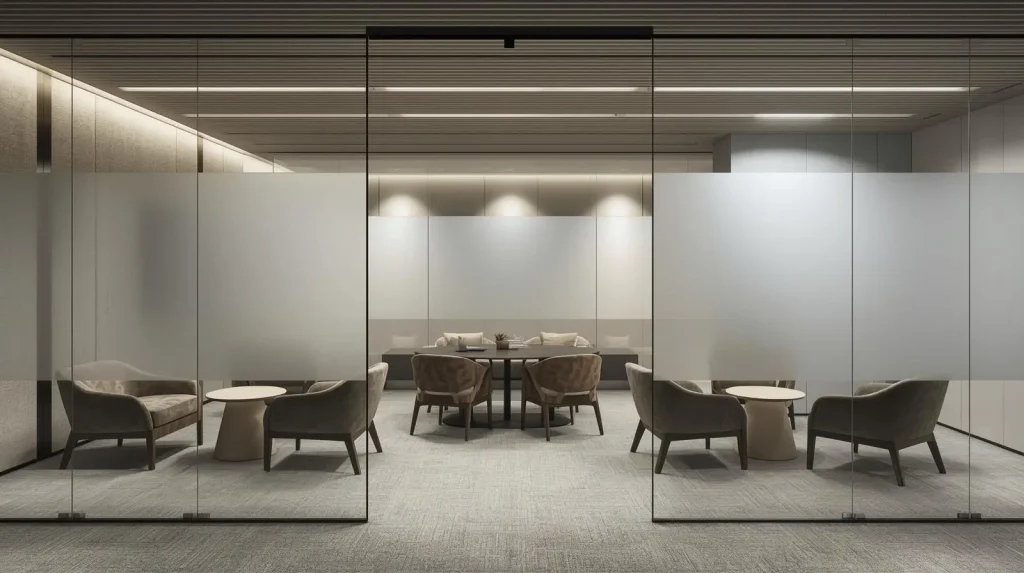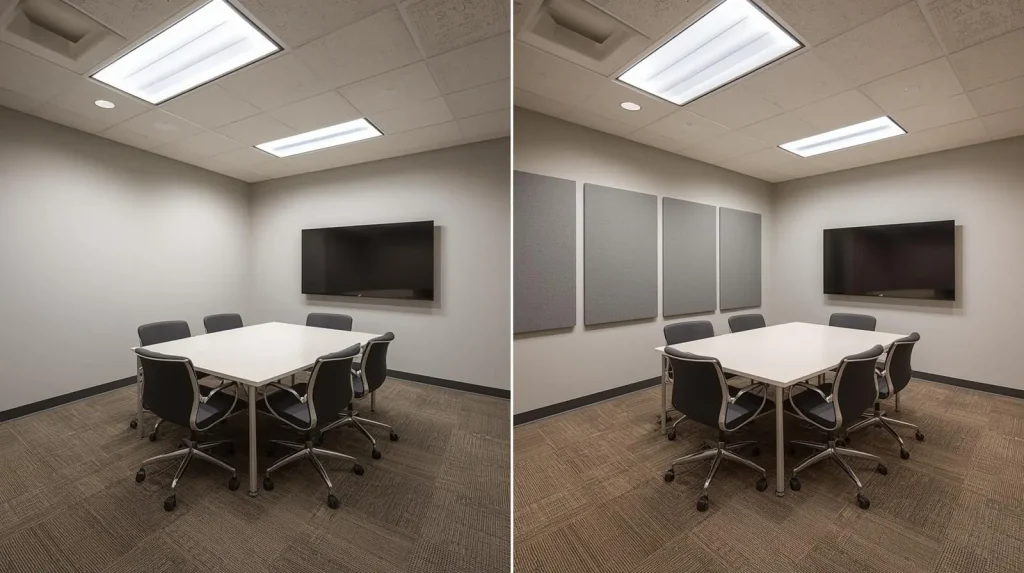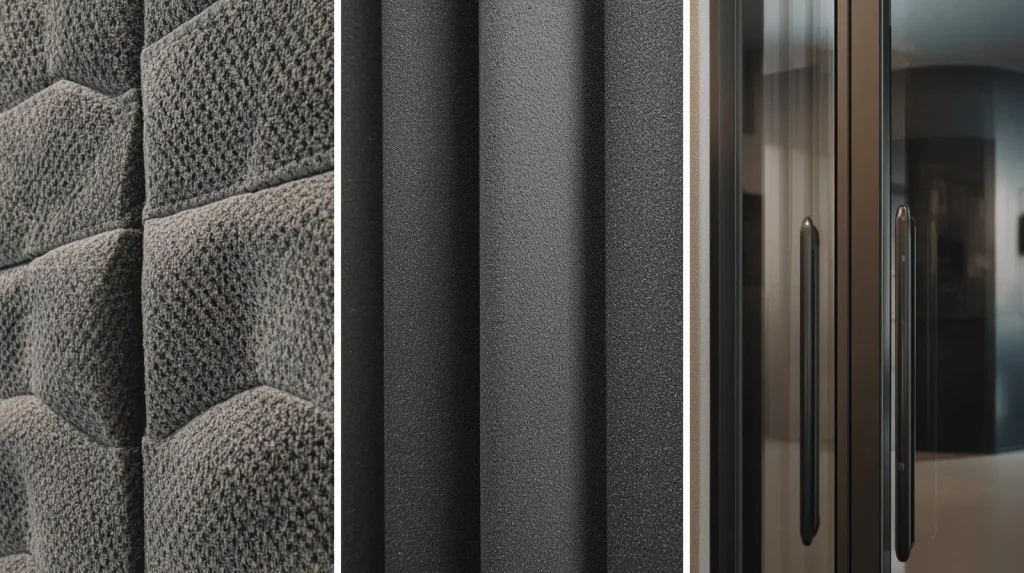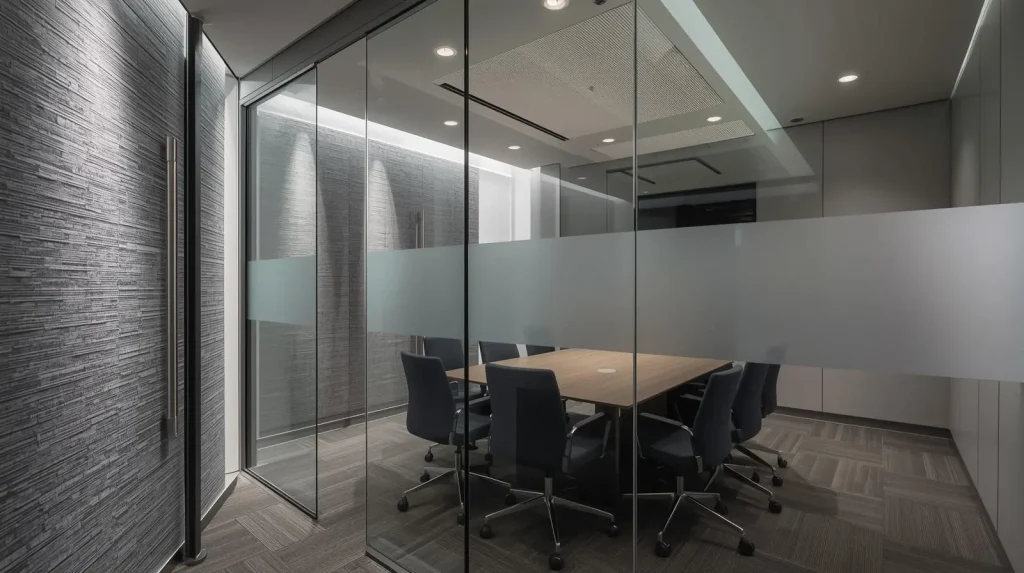In the modern business world, information is one of the most valuable assets a company holds. From strategic planning sessions to sensitive HR meetings, organizations rely on the ability to share details freely in private spaces. However, when conversations leak beyond the walls of a meeting room, the consequences can be severe. Competitors may gain access to trade secrets, employees could lose trust in leadership, and legal risks may arise if confidential information is compromised.
This is why meeting room soundproofing is no longer just a design choice but a strategic necessity. Beyond comfort and professionalism, soundproofing directly impacts security, compliance, and organizational trust. In this blog, we will explore why meeting room soundproofing is essential for confidential discussions, the risks of neglecting it, and the best practices businesses can follow to create secure and distraction-free spaces.
The Growing Importance of Confidential Discussions
Business strategies require privacy
Board meetings, merger negotiations, and product development conversations often involve sensitive details. If these discussions are overheard, competitors or unauthorized employees may gain access to information that can jeopardize the company’s position.
Employee trust depends on confidentiality
Discussions around performance reviews, disciplinary actions, and HR-related issues must remain private. When employees hear echoes of conversations outside closed doors, trust and morale decline. Soundproofing ensures employees feel protected when dealing with sensitive matters.
Legal and compliance considerations
Data protection regulations increasingly emphasize confidentiality. For example, financial firms, law practices, and healthcare providers have obligations under compliance laws to protect client and patient information. Poorly insulated meeting rooms could inadvertently lead to violations and penalties.
What is Meeting Room Soundproofing?
Meeting room soundproofing is the process of preventing sound from escaping or entering a space. Unlike simple noise reduction, which aims to make a room quieter, soundproofing creates barriers that stop conversations from leaking.

Soundproofing methods typically involve:
- Acoustic insulation in walls and ceilings to block sound transmission.
- Specialized doors and seals that prevent sound leaks at entry points.
- Double-glazed or laminated windows for sound control.
- Acoustic panels that absorb and diffuse sound inside the room for clarity.
When done correctly, soundproofing ensures that only the people inside the room can hear the conversation.
Risks of Poor Meeting Room Soundproofing
Eavesdropping and competitive risk
If conversations about pricing, contracts, or product roadmaps can be overheard through thin walls, competitors may gain an unfair advantage. This can directly affect a company’s growth and reputation.
Internal confidentiality breaches
Even within organizations, not all information is meant to be shared across departments. A poorly insulated meeting room can lead to rumors, leaks, and unnecessary workplace tension.
Reduced productivity and focus
Noise from outside the room can distract meeting participants, while sound leakage can make presenters feel uneasy about speaking freely. Both issues reduce the effectiveness of discussions.
Legal exposure
In industries bound by confidentiality, inadequate soundproofing could be interpreted as negligence. For example, if client data is overheard, it could lead to lawsuits or fines.
Benefits of Meeting Room Soundproofing
Enhanced privacy and security
Soundproofing provides assurance that discussions remain confidential. This allows leadership teams, HR professionals, and client-facing staff to focus on the substance of the conversation rather than worrying about being overheard.
Improved meeting experience
Acoustic treatments inside the room reduce echoes, making speech clearer. Participants can hear each other better, improving collaboration and decision-making.
Better compliance with regulations
Soundproofing demonstrates a proactive approach to data protection and privacy laws. It helps companies show that they are safeguarding sensitive information through physical as well as digital measures.
Increased employee trust
When staff see that private conversations are truly private, they gain confidence in the organization’s professionalism and respect for confidentiality.

Effective Soundproofing Solutions for Meeting Rooms
Soundproof walls
Walls are the most common point of sound leakage. Installing dense insulation materials or double-layered drywall can significantly reduce transmission. For high-security areas, specialized soundproof wall panels are available.
Acoustic doors and seals
Standard office doors often leave gaps that allow sound to pass through. Acoustic-rated doors with perimeter seals close these gaps, ensuring better isolation.
Windows and glazing
Glass walls are popular in modern office design, but they also pose soundproofing challenges. Laminated glass or double-glazed partitions help maintain the aesthetic while blocking sound.
Ceiling and floor treatments
Sound can travel through ceilings and floors if they are not properly insulated. Adding acoustic ceiling tiles, carpets, or underlays helps prevent leakage.
Sound masking systems
In some cases, businesses complement soundproofing with sound masking technology. This involves low-level background noise that makes overheard conversations unintelligible outside the room.

Best Practices for Soundproof Meeting Rooms
- Conduct an acoustic audit before implementing solutions to identify problem areas.
- Prioritize door and wall insulation since these are the most common weak points.
- Integrate soundproofing during office design rather than as an afterthought.
- Train employees on confidentiality so that physical soundproofing is paired with behavioral practices.
- Regularly test meeting room privacy by conducting sound checks from adjacent spaces.
Conclusion
Meeting room soundproofing is far more than an aesthetic upgrade. It is a critical investment in security, privacy, and organizational trust. By ensuring confidential discussions remain private, businesses not only protect sensitive information but also strengthen compliance, improve productivity, and foster a culture of trust.

If your organization relies on secure conversations, now is the time to evaluate the soundproofing of your meeting rooms. Whether you are designing a new office or upgrading existing spaces, prioritizing acoustic privacy ensures that your most important discussions stay where they belong, inside the room.
Ready to create secure and confidential meeting spaces? Explore professional meeting room soundproofing solutions and give your business the privacy it deserves.

